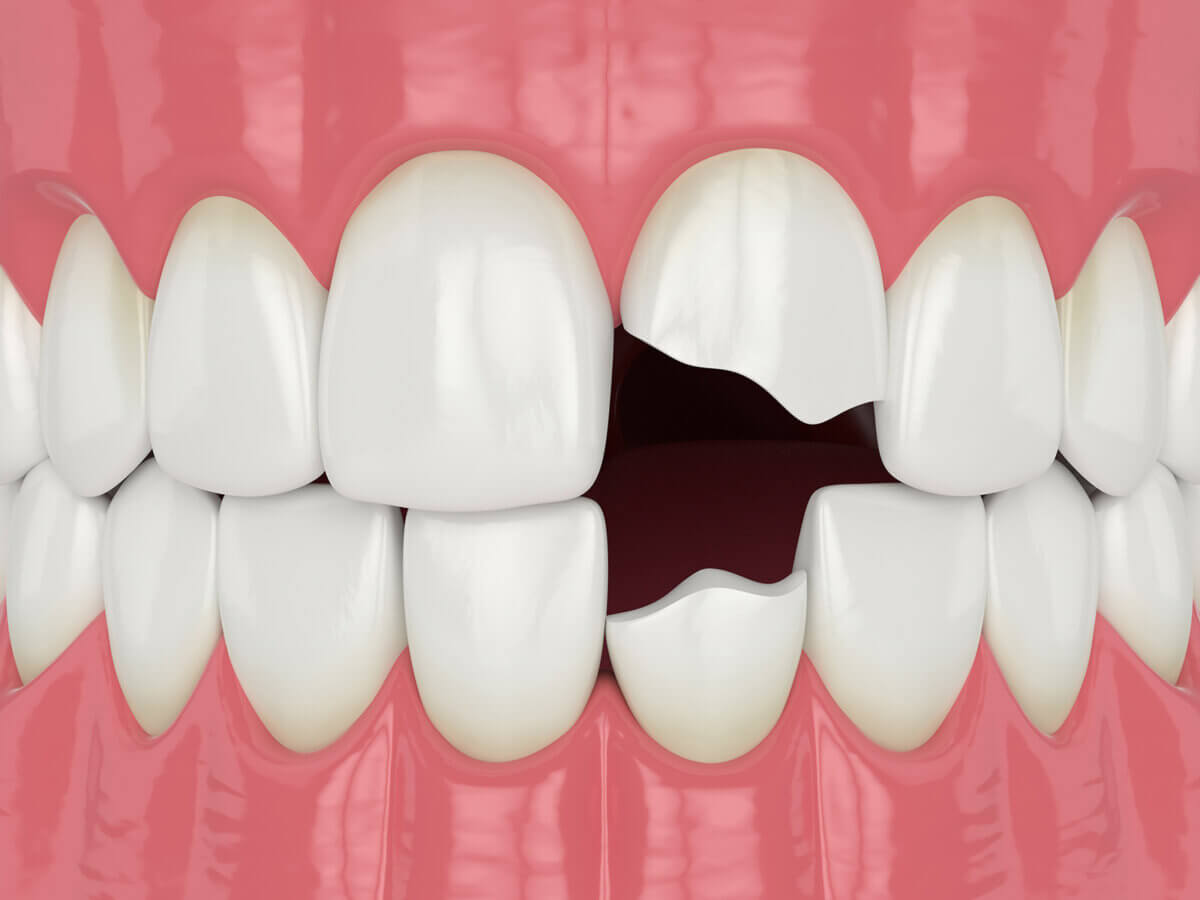Blog
Dental hygiene tips for healthy teeth & gums

What Happens To Tooth Enamel With A Chipped Tooth?
Tooth enamel is the hard outer layer of teeth that protects them from the forces of chewing and biting. Without enamel protection, teeth become vulnerable to decay and damage.
When a tooth is chipped, the enamel is compromised. Since enamel isn’t a living tissue, it can’t regenerate or repair itself. If the damage is extensive enough to erode the enamel or potentially weaken the jawbone, it’s essential to see a dentist.
Causes of Enamel Damage
Several factors can damage tooth enamel, including:
- Consuming acidic foods and beverages
- Brushing teeth too aggressively
- Grinding teeth during sleep
- Exposure to pollutants or certain chemicals
- Reasons for a Chipped Tooth
Common causes of chipped teeth include:
- Tooth Decay: Acid formation in the mouth, caused by bacteria and food debris, leads to tooth decay. This can weaken teeth, making them more susceptible to chipping.
- Trauma to the Face: A hard blow or trauma to the face, such as from a fall, can result in a chipped tooth.
- Bad Bite: Biting down on hard objects can weaken teeth, increasing the risk of them chipping.
- Bad Habits: Habits like nail-biting or teeth-grinding can contribute to teeth chipping over time.
Treatments for Enamel Damage
The best defense against enamel damage is prevention. However, if enamel is already damaged, there are treatments available:
- Dental Bonding: This involves applying a tooth-colored resin to the damaged area to protect it from further harm.
- Veneers: These porcelain shells bond to the front of teeth, covering any chips or cracks in the enamel.
- Dental Crowns: For extensively damaged teeth, dental crowns, which act as caps, cover the entire tooth, providing added protection.
Prevention Tips
Prevention is key. Adopting good oral hygiene habits can prevent many dental issues. Here are some tips to protect enamel:
- Limit Acidic Foods and Beverages: These can erode enamel. After consuming acidic items, rinse your mouth to minimize damage.
- Brush Gently: Aggressive brushing can wear down enamel. Use a soft-bristled brush and be gentle.
- Use Fluoride Products: Fluoride strengthens enamel, making it more resistant to damage. Many toothpastes and mouthwashes contain fluoride. Consult your dentist about appropriate fluoride use.
- Stay Hydrated: Saliva protects against cavities. A dry mouth can increase the risk of cavities and other dental issues. Drinking water helps maintain saliva production and can prevent tooth decay.
Final Thoughts
Once lost, enamel doesn’t grow back. A chipped tooth can impact both your appearance and confidence. The best way to prevent chipping is to strengthen your teeth. A diligent dental routine, combined with regular dental check-ups, can save both time and money. With proper care, enamel can withstand germs, erosion, and even blunt force.
However, if you do damage your enamel or chip a tooth, seek dental care promptly. Ignoring dental problems can exacerbate the damage and prolong the healing process. Along with a solid oral care routine, dietary precautions can also play a significant role in maintaining strong teeth.
